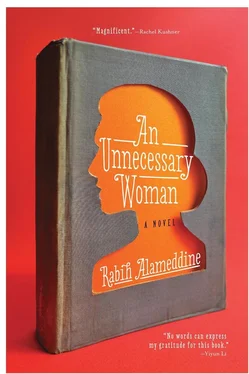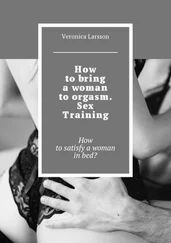Dampness has crimpled the first page and all underneath, softened and thinned them. If I’m not careful, I might easily tear a sheet in half when I pick it up. When the pages dry, they’ll turn brittle and crinkly. Ink was less permanent when I translated these pages. Arabic words swim on the sheets; some drown, some float. Some pages look like a Rorschach, a faint blue Rorschach. I see a big dragon eating a pig. I see my mother eating a pig. I see a squashed butterfly. I see my life circling the drain. I see water damage everywhere. I see words, not all disconnected. I can rewrite these pages with an Egyptian pyramid’s worth of effort. I’ll have to be painstakingly conscientious and cautious, but it can be done. I’ll probably die before I finish transcribing. The newer translations are probably less damaged than Anna, the ink being less fugitive. I can also throw the whole pile in one of the dustbins of history. Why would I want to resuscitate this rotting cadaver? It’s nothing if not unnecessary.
I am nothing.
I’ll always be nothing.
I can’t even wish to be anything.
Aside from that, within me I have all the dreams of the world.
Álvaro de Campos, Pessoa’s bisexual dandy poet, wrote that. He is welcome in my home anytime.
I am nothing. I should aspire to become a speck. I assign importance to literature and poetry, plate the arts in dazzlingly bright gold to bewilder my vision so as not to see what is plain to all humanity: I am nothing, I’ll always be nothing.
In order to live, I have to blind myself to my infinitesimal dimensions in this infinite universe.
Kneeling on Fadia’s ancient linen on my kitchen floor, I separate Anna page by page, placing each in order around me. As I extend my arms, I realize I’m genuflecting, as if I’m praying. This is my religion.
My handwriting hasn’t changed much in all these years, but the water damage makes the pages look like a stranger wrote them. Everything is written in a foreign language that I must translate — retranslate. Letters are thickened randomly, some word endings are extended. In a few instances, the tip of the Arabic letter r runs like a river tributary until it either dries up or pours itself into the lake of the letter that follows.
A short scream escapes my throat when I see slippered feet almost touching Anna’s farthest sheet of paper. Marie-Thérèse has entered without my noticing. She apologizes for startling me, though she doesn’t need to since it’s my fault. She informs me that the plumbers have arrived. They’re going to be breaking into the wall in the maid’s bathroom upstairs. It will be noisy but it shouldn’t take long.
“We’ll have our water back in about an hour,” she says. Sheep-colored wool tufts crawl from inside her low-heeled slippers. “Joumana is making coffee while Fadia argues with the plumbers. They’ll be down with their dryers shortly.” She extends her arm, and her hair dryer’s electric cord sways like a drunken pendulum. “I can start while we wait for them to join us.”
Suddenly the ceiling and the kitchen walls behind me convulse. The plumbers must have dropped a heavy load. I feel as if something is shattering in my brain, but I pay it no mind.
Not for the first time, I notice that Marie-Thérèse has an alarmingly fragile appearance, more substantial than my mother’s, but also more brittle, as if she wouldn’t survive a minor fall without a major break. A baby blue nightgown calls attention to itself from under the collar of her housedress.
“It hasn’t been our usual morning,” she says. “I haven’t had time to make myself presentable.”
She touches her hair, which is bursting out of its clips. What was a meticulous bouffant after the salon visit is now massive and unkempt.
I should say something. I must have been staring.
“I’m less presentable.” I gesture to the burgundy mohair overcoat. “How unattractive is this? It’s repulsive.” Sorrow seems about to envelop my world once more. “Who wears something like this? Who?”
“I would,” she says.
“It’s unsightly.”
“It looks warm.”
Marie-Thérèse gathers the early pages of Anna Karenina and sits at the red-and-yellow breakfast table. She plugs the blow dryer into the wall socket, but before she turns it on she adjusts her eyeglasses and glances at the title. Her face bursts into life.
“Thank the Lord,” she exclaims. “I’ve read this. I was worried because I hadn’t even heard of the others. I felt so small. In all the other piles not one name I recognized. I felt inadequate.”
“Don’t,” I say. “I’m the one who should feel so.”
“But I’ve read Anna Karenina ,” she says. “I read Tolstoy and Dostoyevsky as a young girl. It’s been a long time, but I did.”
“It’s been a long time for me as well.” Those were the books that led me down this path, the books responsible for both the peak and the abyss.
“I remember quite a bit of it,” she says. “I loved it so much. All my friends did. It was what all of us had to read. Such different times then. I wonder what young girls read these days. I adored Count Vronsky.”
She smiles to herself. I can imagine her memories of the novel, or, more likely, of who she was and how she felt when reading it. She blushes.
“I fell in love with a character in a book,” she says. “When I first married, I couldn’t understand why my poor husband didn’t behave like the count. I know it’s silly. My husband loved me, cared for me, provided for me, but I still wanted all the frivolities that Vronsky offered. I wanted my husband to be as handsome as I imagined he was.”
“I understand,” I say, and I do. I also understand that you have to lie to yourself to survive in a bad marriage, you have to delude yourself if you want to carry on in this life.
“Oh my,” she says suddenly. “I’m sorry. I shouldn’t be talking about romantic husbands.”
“That’s quite all right,” I say. “Husbands mean so little to me.”
She laughs.
“Did you fall in love with Vronsky as well?” she asks.
“No. I loved Anna.”
Hearing Joumana and Fadia enter the foyer, Marie-Thérèse announces, “We’re talking about Anna Karenina and husbands.”
The women greet this pronouncement as if they heard that one of their children was getting married. The expression on Joumana’s face is that of a woman about to ululate. Fadia holds three hair dryers in her arms, one the size of a cannon, Joumana a tray with her sacred coffee kettle and four cups. I am touched by their thoughtfulness. I have only two cups in my apartment.
We have to drink a first cup of coffee before turning on the hair dryers; Fadia wants a noise-free one. They missed their ritual this morning because of the commotion. Fadia doesn’t get her wish, though, because as soon as she takes a sip, the plumbers begin to bang upstairs. In my reading room, the walls of books tremble in anticipation. My hair dryer nestles in my lap like a prehistoric bird, its open beak hungry, waiting.
The coffee cup is like a thimble in my hand, makes my fingers and thumb look gigantic. I bring it to my lips and take a sip. The coffee is ambrosia, a flavor of heaven. I am stunned. I have never tasted anything like this. Had I known that coffee could taste so good, I would have gotten drunk on it every day. I want to ask them if this is how it tastes all the time or if it’s a unique brew. Do they use a special ingredient, a pinch of salt maybe, or eye of newt? I wonder where they buy their beans. I don’t know how to ask. I consider the possibility that I find it delicious because of the condition I’m in.
Marie-Thérèse adds to the plumbing racket by directing her dryer at the first page of Anna Karenina . Joumana begins with Hamsun’s Hunger . Their faces harden with concentration. Joumana sucks in her lips till her mouth resembles a solitary line laid down by Klee, or by Matisse, who wanted nothing more than to be like everyone else. I don’t ask the question: Are we going to blow-dry every single page of my thirty-seven manuscripts? I don’t believe any of us are young enough to finish the task. We don’t get to find out. Fadia turns on her hair dryer and the electricity shuts off.
Читать дальше












